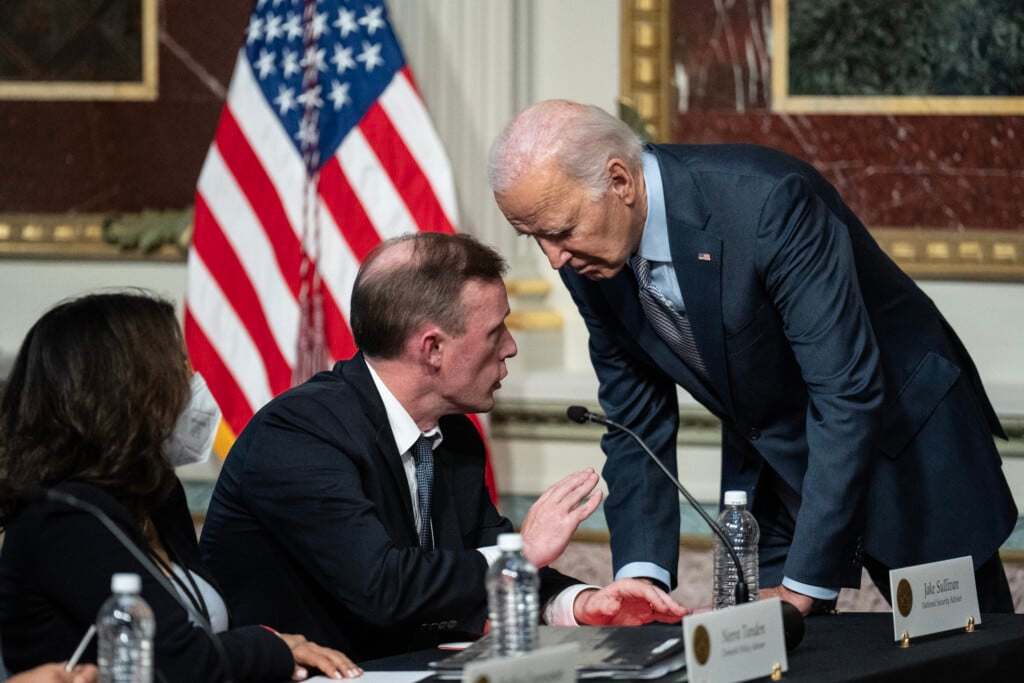
Latest Developments
- U.S. National Security Advisor Presents Plans for Strikes on Iran: President Joe Biden’s national security advisor, Jake Sullivan, presented options last month for a U.S. attack on Iranian nuclear sites should the Islamic Republic push to develop a nuclear weapon prior to January 20. A report published by Axios on January 2 claimed the meeting included discussions of military “options and scenarios” but wasn’t prompted by new intelligence. Biden reportedly did not make any final decision on a course of action.
- Weakened Iranian Proxies Present Opportune Moment: Some administration officials assess that the IDF’s military weakening of Iranian regional proxies like Hamas and Hezbollah, coupled with Israel’s October 26, 2024, airstrikes that targeted Iranian air defenses, may now present an opportune moment of vulnerability to strike the Islamic Republic’s nuclear facilities. Sullivan suggested at a recent conference that these battlefield losses have hastened Iran’s pursuit of nuclear breakout, saying that Iranian officials’ statements on altering the country’s nuclear doctrine have “changed in the last few months” and adding that America must be “vigilant.” Sullivan reportedly did not make an outright recommendation of action during his meeting with the president.
- Iran’s Nuclear Activity Grew During Biden Tenure: Iran has drastically increased its nuclear activity during Biden’s time in office. International Atomic Energy Agency (IAEA) chief Rafael Grossi said in December that Iran now possesses enough 60 percent enriched uranium to build four nuclear devices should it enrich further to 90 percent weapons-grade, which its newly installed centrifuges can accomplish in a “matter of days.” In June, the United States and Israel assessed intelligence on “suspicious research” and computer modeling that Iranian scientists could have been conducting to decrease nuclear breakout time. The Islamic Republic additionally continued construction throughout 2024 on a new nuclear facility known as “Pickaxe Mountain,” buried deep underground near the existing Natanz nuclear site, which could serve as an advanced enrichment plant.
FDD Expert Response
“2025 must be the year that the United States and Israel decisively dismantle Iran’s nuclear weapons program. Most of Tehran’s nuclear weapons expansion occurred since President Biden’s election and his decision to abandon maximum pressure in favor of appeasement. It’s time for Trump to reinstate that pressure and ensure that Iran’s nuclear ambitions are crushed once and for all.” — Mark Dubowitz, CEO
“The Biden administration has observed the Iranian regime expand production of advanced centrifuges, increase stockpiles of highly enriched uranium, move forward with the Pickaxe Mountain enrichment site, prevent the IAEA’s monitoring of nuclear progress, and engage in other activities that finally pushed the U.S. intelligence community to qualify its routine assertion that Tehran wasn’t actively trying to build an atomic weapon. Despite this, when Israel contemplated striking Iran’s nuclear facilities in October after an Iranian missile attack, the White House discouraged it. Reports that the president is now seriously contemplating what his administration has worked against just aren’t credible. With its palpable aversion to the use of force against Iran and its long-lingering hope that Tehran might engage in nuclear restraint in exchange for sanctions relief, the Biden White House has abetted Iran’s rise to a nuclear-threshold state.” — Reuel Marc Gerecht, Resident Scholar
“One can be forgiven for being skeptical of internal deliberations by the Biden administration about the use of force, especially when looking at its track record of pulled punches against the Islamic Republic politically, economically, and militarily. Nonetheless, the administration deserves credit for publicly continuing a line of argumentation adhered to by all U.S. presidents since 2002, when the existence of secret Iranian nuclear facilities was revealed, that the United States would keep all options on the table to prevent the Islamic Republic of Iran from developing nuclear weapons.” — Behnam Ben Taleblu, Iran Program Senior Director and Senior Fellow
“Sullivan seems unable to connect the dots on why Iran’s nuclear threat has become so advanced. It is due in large part to failed Biden administration policy — its unwillingness to use maximum economic pressure and a credible threat of military force — to constrain and deter Tehran.” — Andrea Stricker, Nonproliferation and Biodefense Program Deputy Director and Research Fellow
